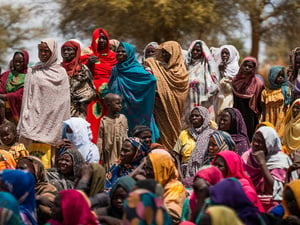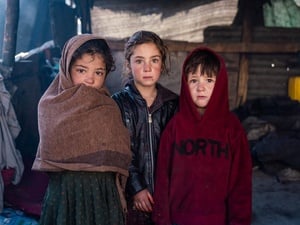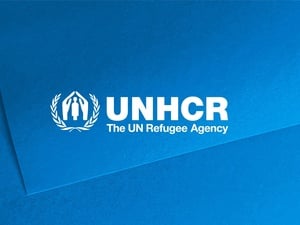Final convoy marks closure of notorious Jalozai site
Final convoy marks closure of notorious Jalozai site
PESHAWAR, Pakistan - A final convoy of Afghans left the makeshift Jalozai refugee camp today, ending a three-month UNHCR/government operation to empty the squalid site in north-west Pakistan. In all, some 45,000 Afghans were transferred from Jalozai since late November to five new UNHCR camps where refugees can get adequate help and shelter.
"For much of the past year, Jalozai was tragic and visible evidence of the miserable plight of Afghans fleeing decades of war, abuse, drought and deprivation," High Commissioner for Refugees Ruud Lubbers said in Geneva. Lubbers has worked to close the unofficial site since first visiting it in early 2001.
"Jalozai's very existence was a sad reminder of the international community's neglect of the Afghan situation prior to the events of September 11," Lubbers said. "By finally emptying it today, we are demonstrating the international community's renewed commitment to help end the suffering of the Afghan people and to support host nations like Pakistan that have borne so much of the burden in recent years."
Beginning in late 2000, Jalozai, about 40 kms east of Peshawar, became a precarious home to tens of thousands of Afghans who constructed crude shelters of plastic, canvas and other scraps in bottomland that often flooded when it rained.
Already hosting more than 2 million long-time Afghan refugees largely forgotten by the international community, the government was at first reluctant to officially recognise the new arrivals. Relief agencies were unable to register Afghans at the spontaneous, ramshackle site and many refugees, particularly children, died while aid workers struggled to provide minimum services.
UNHCR, the World Food Programme, Médecins Sans Frontières, the International Rescue Committee, Shelter Now International, other agencies and many private donors provided some assistance. But Jalozai's poor location and cramped, haphazard layout meant that many of its undocumented refugees received insufficient supplies, suffering terribly as a result.
A year ago, UNHCR was permitted to transfer some 60,000 people from Jalozai to the nearby New Shamshatoo camp. But thousands more desperate Afghans again flocked to Jalozai and the site filled up yet again.
With the arrival in Pakistan of some 250,000 new Afghan refugees in the months following the Sept. 11 terrorist attacks, international attention again focused on assistance programmes in Pakistan. UNHCR received approval from the government to establish new refugee camps in the country's border belt, making possible the relocation operation that finally allowed today's closure of the makeshift Jalozai site.
Senior government, provincial and UN officials were on hand today as UNHCR-hired trucks pulled out of New Jalozai carrying the last remaining refugees to the recently-opened Barkili camp, about 150 kms to the north near Pakistan's border with Afghanistan.
In all, Pakistan shelters more than 2 million Afghan refugees, many in long-time settlements. Others live freely throughout the country. The 14 new camps and one transit centre built since 11 Sept. in North West Frontier and Baluchistan Provinces currently hold some 189,000 "new" Afghan refugees, including those transferred from Jalozai. With support of the government, UNHCR has identified sites for up to 250,000 people and will continue to relocate Afghans in the Quetta and Peshawar areas who come forward seeking assistance and protection.
Afghans make up the largest single refugee population of concern to UNHCR, with more than 3.7 million worldwide. That includes at least 2 million in Pakistan and more than 1.5 million in Iran.
Conditions allowing, UNHCR plans to help some 1.2 million Afghan refugees and internally displaced people return home this year in a repatriation programme scheduled to begin in March. Already, however, tens of thousands of Afghans are returning home spontaneously from Pakistan and Iran - more than 105,000 of them in January alone.








